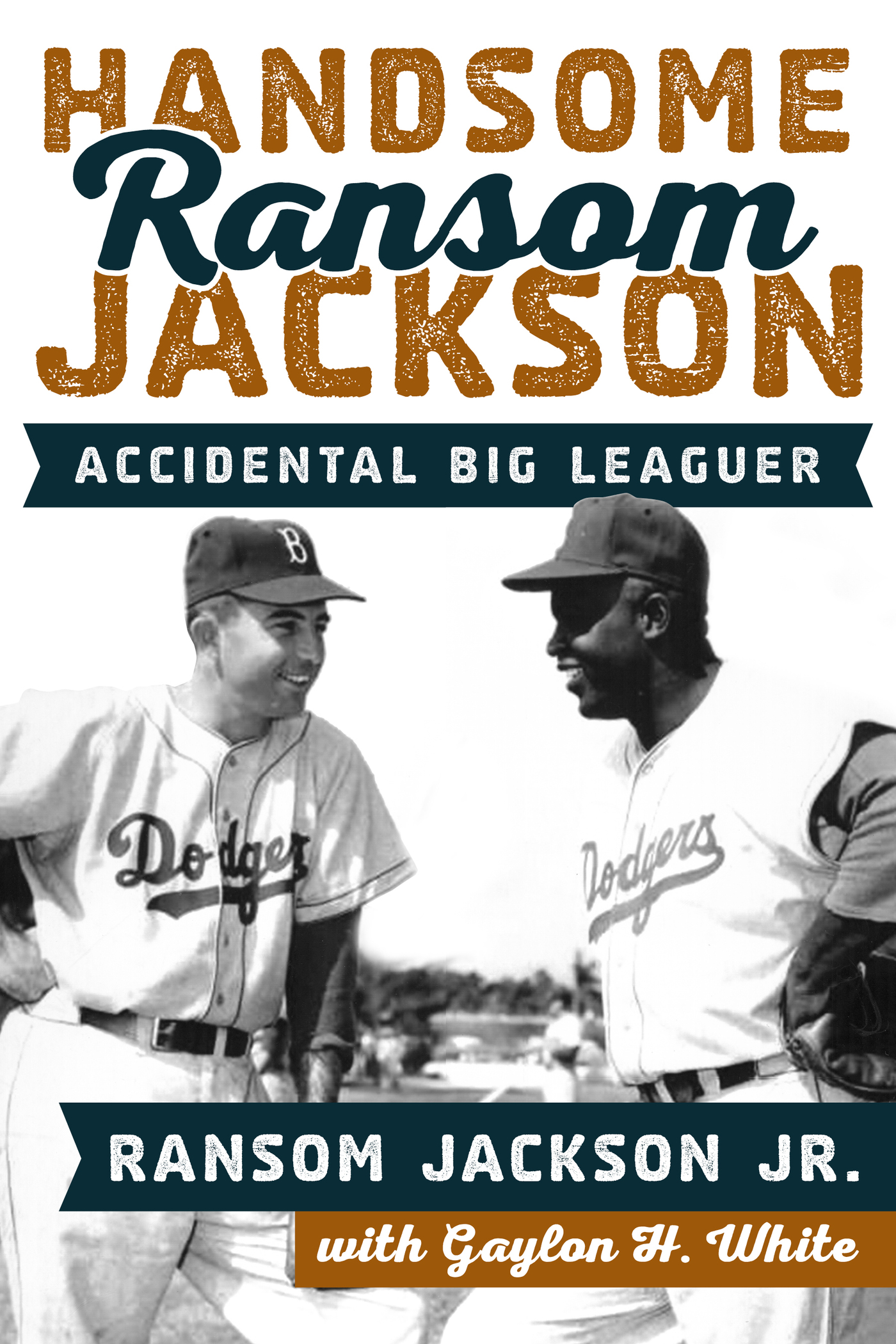Handsome Ransom Jackson
Handsome Ransom Jackson
Accidental Big Leaguer
Ransom Jackson
with Gaylon H. White
ROWMAN & LITTLEFIELD
Lanham Boulder New York London
Published by Rowman & Littlefield
A wholly owned subsidiary of The Rowman & Littlefield Publishing Group, Inc.
4501 Forbes Boulevard, Suite 200, Lanham, Maryland 20706
www.rowman.com
Unit A, Whitacre Mews, 26-34 Stannary Street, London SE11 4AB
Copyright 2016 by Rowman & Littlefield
All rights reserved. No part of this book may be reproduced in any form or by any electronic or mechanical means, including information storage and retrieval systems, without written permission from the publisher, except by a reviewer who may quote passages in a review.
British Library Cataloguing in Publication Information Available
Names: Jackson, Ransom, 1926 | White, Gaylon H., 1946
Title: Handsome Ransom Jackson : accidental Big Leaguer / Ransom Jackson Jr. with Gaylon H. White.
Description: Lanham : ROWMAN & LITTLEFIELD, [2016] | Includes bibliographical references and index.
Identifiers: LCCN 2015035524| ISBN 9781442261549 (hardcover : alk. paper) | ISBN 9781442261556 (ebook)
Subjects: LCSH: Jackson, Ransom, 1926 | Baseball playersUnited StatesBiography.
Classification: LCC GV865.J3 A3 2016 | DDC 796.357092--dc23 LC record available at http://lccn.loc.gov/2015035524
 TM The paper used in this publication meets the minimum requirements of American National Standard for Information Sciences Permanence of Paper for Printed Library Materials, ANSI/NISO Z39.48-1992.
TM The paper used in this publication meets the minimum requirements of American National Standard for Information Sciences Permanence of Paper for Printed Library Materials, ANSI/NISO Z39.48-1992.
Printed in the United States of America
This book is a labor of love for my wife, Terry, and our family, as they were either too young or not yet born to have experienced some of this adventure with me. I have put these stories on paper so they can be enjoyed and remembered by our six children and their spouses: Randy and wife, Laurie; Chuck and wife, Anna; Ann and husband, Clay; Ginny and husband, Bill; Meredith and husband, Kenny; Ransom and wife, Lara; twelve grandchildren and their spouses: Courtney and husband, Bill; Rachel; Leeanne and husband, Dustin; Trey and wife, Ashley; Emily; Alison; Paige; Fowler; Luke; Wells; Elizabeth, and Levi; and so far six great grandchildren: Madison, Harrison, Savannah, Marshall, Kristopher, and Jackson. Youre all stars in my book.
Ransom Jackson Jr.
A tip of my Cubs baseball hat to my mother, Mildred Joyce White, who didnt throw away my collection of ten thousand baseball cards when I left home for college. She preserved all of them, including my Handsome Ransom Jackson cards, as if they were diamonds. Thats a loving mother, deserving of a baseball card of her own.
Gaylon H. White
Foreword
Roger Craig
The first time I walked in the Brooklyn Dodgers clubhouse in 1955 and saw all of the teams great players, I thought to myself, I dont belong.
Wherever I looked there was a future Hall of Famer: Jackie Robinson, Roy Campanella, Pee Wee Reese, and Duke Snider. There also was Gil Hodges, Carl Furillo, Jim Gilliam, Don Newcombe, and Carl Erskinesuperstars on any other team.
Randy Jackson was a two-time All-Star when he joined the Dodgers in 1956 so he didnt have the same doubts I did. He played against these guys with the Chicago Cubs. Now they were his teammates and the Dodgers tabbed him to replace one of themJackie Robinson.
Jackie wasnt the legend he is today. The number, forty-two, was still on his back, not yet retired and displayed prominently in every big-league ballpark in America. There were questions about Jackies future but not the greatness of his accomplishments since breaking Major League Baseballs color barrier in 1947.
Its hard to imagine now the pressure of replacing Jackie at third base. He was thirty-seven and trying to rebound from a career-worst year but he was Jackie, the greatest player and most tenacious competitor that ever lived.
All eyes were on Jackie and Randy at spring training. I had a front row seat, so to speak, because I was Randys roommate. If he was bothered by the pressure, it never showed.
As a hitter, Randy was a tough out. He made all of the plays on defense. He worked hard.
Randy sat on the bench for nearly two months. He never complained. When Jackie went into a batting slump, Randy moved into the starting lineup, batting cleanup behind Snider. He was one of the hottest hitters in the National League until he was injured in a freak household accident.
Randy was the same through these ups and downs. In fact, he had a calming effect on me.
I had a 1211 won-loss record in 1956, winning eight of my first ten decisions. I lost my next two games, the second a 20 loss. Hey, you pitched your heart out, Randy said. We didnt score any runs.
Randy kept me positive, never letting me get negative. That carried me the rest of my career, especially the next two years.
I hurt my right arm pitching the last game in Brooklyn Dodger historySeptember 29, 1957. In the seventh inning I threw a curveball and felt something snap in my shoulder. I was taken out for a pinch hitter the following inning and didnt tell anybody about my arm except for my wife, Carolyn. This was the last game of the season, I said. It will be okay next spring.
It never was. I found out later it was a torn rotator cuff. Today, theres Tommy John surgery to make a pitchers bad arm feel good again. At the time the surgical procedure was as unknown as Tommy John, the Dodger pitcher who made it famous.
I had to learn how to pitch again. My good fastball was gone but I ended up mastering two other pitches, a sinker and a slider. Staying positive was the key to making the transition and staying in the majors another nine seasons.
The first game I pitched for the Dodgers in 1955 is also noteworthy because it provides insight into Jackie and his replacement, Randy.
I was in the Ebbets Field locker room after pitching a three-hitter to beat the Cincinnati Redlegs, 62. Dodger manager Walter Alston came up to me and said, Kid, you have a wife and baby in Montreal. Why dont you go back and pick them up?
I was with the Montreal Royals in the International League prior to joining the Dodgers. I grew up in North Carolina. This was my first time in New York City and I didnt have a clue about how to get to Idlewild Airport (now John F. Kennedy).
Go to the underground and catch the train, somebody said.
What do you mean go underground? What am I going to do there?
Thats where you catch the train.
They dont have trains underground.
On hearing this, Jackie came to my rescue.
Come on, kid, Ill give you a ride to the airport.
I was nervous and scared when I got in the car. Jackie immediately put me at ease.
Youve got a chance to be a good major-league pitcher, he said, and here are some things you need to learn.
I found out later that Jackie didnt live near the airport. He went out of his way to take me there.
That brings me back to Randy.
He was the perfect roommate, a fun guy to be around. Like Jackie, he was a class act, a role model for younger players like me. The tips they gave stuck with me my entire career. Randy was the right guy to replace Jackie because their character and lifestyle was Hall of Fame.
Roger Craig is a former major-league pitcher, coach, and manager. In twelve seasons, he won seventy-four games for the Dodgers, New York Mets, St. Louis Cardinals, and Philadelphia Phillies. As a coach, his specialty was teaching the split-finger fastball to pitchers for the San Diego Padres, Houston Astros, and Detroit Tigers. He managed the San Diego Padres in 19781979 and the San Francisco Giants from 1985 to 1992, leading them to the National League pennant in 1989.
Next page
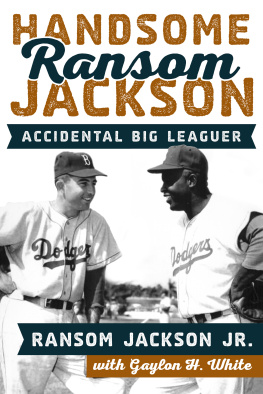
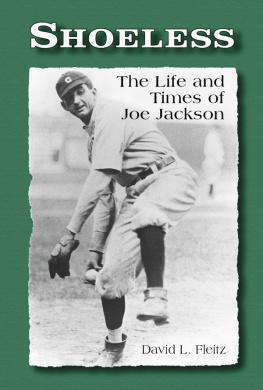
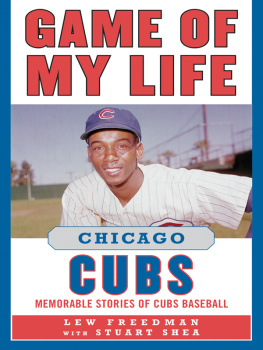
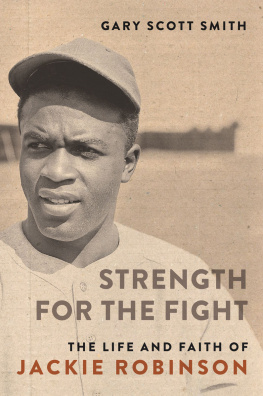
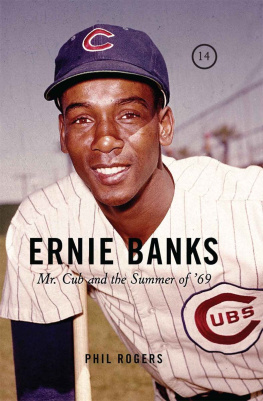
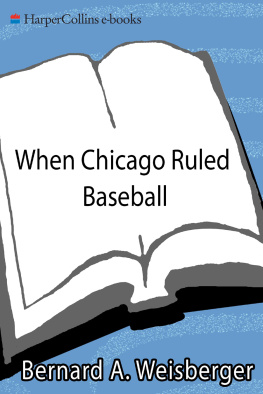
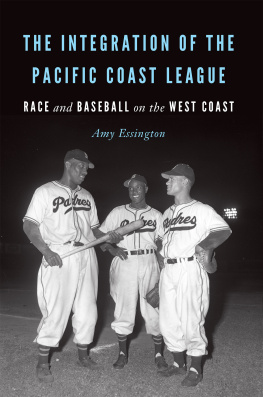

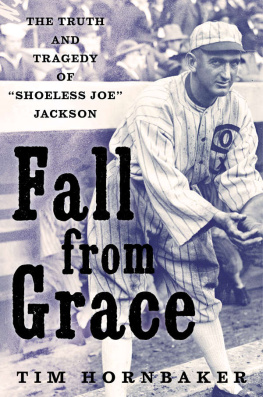

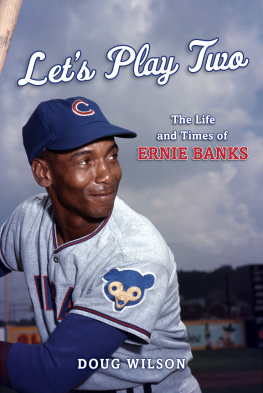
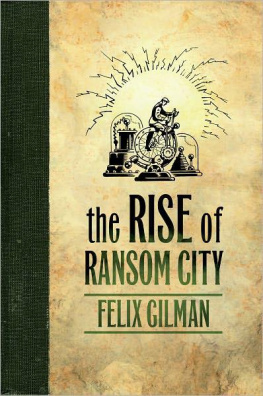
 TM The paper used in this publication meets the minimum requirements of American National Standard for Information Sciences Permanence of Paper for Printed Library Materials, ANSI/NISO Z39.48-1992.
TM The paper used in this publication meets the minimum requirements of American National Standard for Information Sciences Permanence of Paper for Printed Library Materials, ANSI/NISO Z39.48-1992.